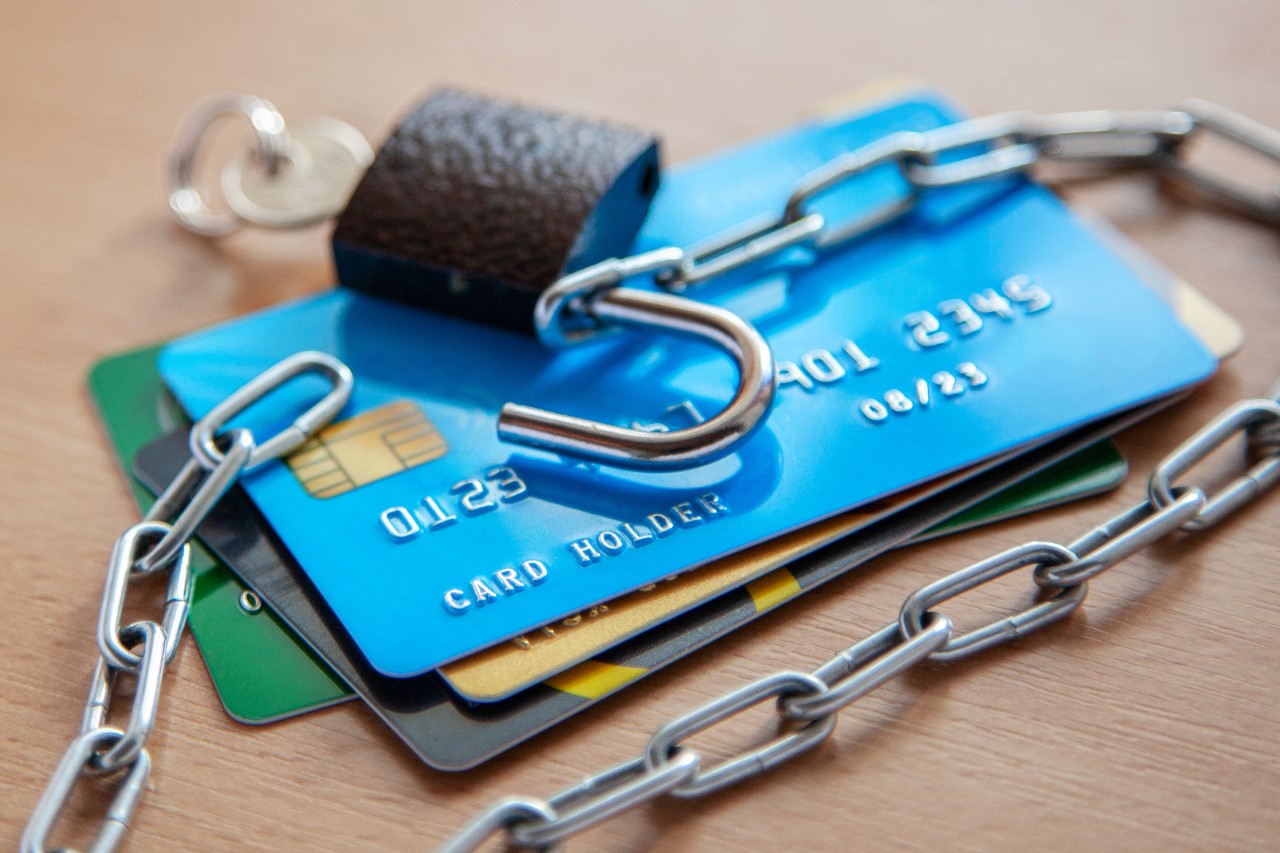
How-to guide: What to do if your identity is stolen
When cybercriminals steal your identity, getting things back in your control can feel like an overwhelming task — but taking these steps can minimize the damage and keep yourself safer.
Identity theft is aggravating and mystifying: You don’t always know when your identity has been stolen, you’ll almost never know who did it, and you don’t know what the full consequences of the crime will be.
Every step you take after the crime to restore your good name — not to mention to find the perpetrator — can be trying. You could spend weeks or more getting back to a normal financial life.
As soon as you believe your identity has been stolen, you need to address the issue right away. If you’ve lost a bank card or notice something fishy on a financial statement, assume a theft has happened. Take action by completing these tasks as soon as possible.
1. Call your bank if you believe your identity has been stolen
Contact the fraud departments or bank customer service deposits of the financial companies where you do business.
Next, call the fraud department of any companies from which the thief has made purchases. Keep in mind that the companies may suspect that you’re a criminal trying to hijack your accounts. They are likely to ask you for information to verify your identity before they help you.
Request written confirmation that the accounts were closed and that fraudulent transactions were canceled or are being investigated.
If nothing has been fraudulently purchased in your name, it doesn’t mean you’re in the clear. It’s safest to assume that an attack is underway, and you should immediately change your passwords and PINs.
2. Place a fraud alert
Contact one of the three nationwide consumer credit-rating agencies (Equifax, Experian, or TransUnion) and ask them to place a fraud alert on your account. By law, each agency is required to pass the alert to the other two.
The alert requires businesses to take more stringent steps to verify the identity of anyone who applies for credit in your name. Alerts are free and valid for 90 days with one 90-day extension. There’s also a free seven-year alert that comes with two free credit reports over the next 12 months. The credit agencies remove your name from marketing lists for prescreened credit offers for five years.
Get letters from the agencies confirming the actions they’ve taken on your behalf. You can also lock down your credit reports and make it impossible for most organizations to access them — even those to which you might be applying for credit.
Send a record of account closings and charge corrections to the credit agencies.
3. Create an Identity Theft Affidavit
Call the Federal Trade Commission (FTC) at 877-438-4338 or go to FTC’s identitytheft.gov. As part of this process, you will create an “Identity Theft Affidavit.” Don’t worry, you don’t need to be a lawyer. Just follow the steps and print the affidavit when you’re done. You’ll need it for the next step.
4. File a report with the police
Take your Identity Theft Affidavit to your local law enforcement agency to report the incident and get the police report. Bring the affidavit, government-issued photo identification and proof of address such as a utility bill. It will help to show other proof of the theft, such as financial statements showing fraudulent charges.
5. Create an Identity Theft Report
Combine your FTC Identity Theft Affidavit with your police report to create an Identity Theft Report. Some of the people you deal with on significant financial matters will want to see the report to be convinced that you are not the identity thief. Contact your employer to have electronic paychecks redirected.
Important identity theft contacts
- Your local police department
- The fraud department of any of the three credit reporting agencies to place a “fraud alert” on your credit file: Equifax 888-766-0008, Experian 888-397-3742, TransUnion 888-909-8872
- Your bank and/or credit card company
- Adult Protective Services (county or state)
- The Federal Trade Commission for ID theft at 877.ID.THEFT (877-438-4338)
- You can also find contact information at eldercare.gov or by calling 800-677-1116
Gene Fugate
SVP and Senior Commercial Banker, U.S. Bank
About the Goering Center for Family & Private Business
Established in 1989, the Goering Center serves more than 400 member companies, making it North America’s largest university-based educational non-profit center for family and private businesses. The Center’s mission is to nurture and educate family and private businesses to drive a vibrant economy. Affiliation with the Carl H. Lindner College of Business at the University of Cincinnati provides access to a vast resource of business programming and expertise. Goering Center members receive real-world insights that enlighten, strengthen and prolong family and private business success. For more information on the Center, participation and membership visit goering.uc.edu.
Related Stories
UC students engineer robotics safety and strategy
January 22, 2026
Three UC co-op and capstone students joined Sensory Robotics as to position the fast-growing company for marketing success and engineering prowess.
Is your personal data protected?
December 13, 2023
From phishing attacks, malware and account hijacking to removable media, denials of service and intellectual property theft, cybersecurity incidents are constantly evolving and the impacts are becoming more severe.
Wrongful collection of data: Reduce the risk
December 13, 2023
The law tends to lag a bit behind the rapid evolutionary pace of the technology and software that we use in our businesses.